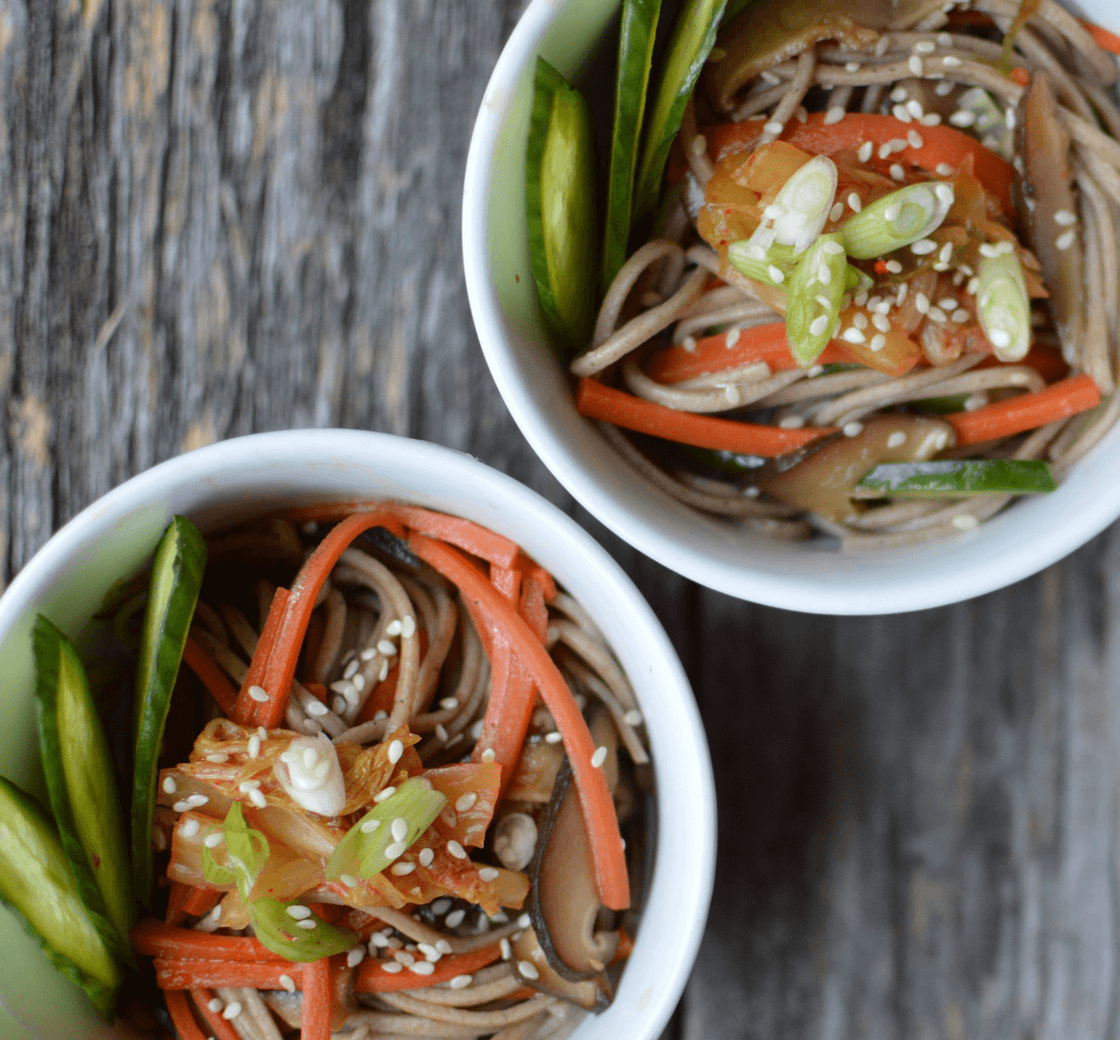
Fermentation is an ancient art touted for its health benefits, reducing waste, and robust flavor profile. Its versatility is embraced by chef professionals worldwide to elevate their creations. Each student will make four jarred ferments to take home and the class will conclude with cooking simple dishes to instruct you on how to best put your ferments to use in your own kitchen. Learn and uncover techniques, distinct flavor profiles, safety measure protocols and dish applications as you make and enjoy: gochugaru toasted sesame kimchi; fermented seven spice mango onigiri; fermented green papaya salad with crushed peanuts; Korean banchan golden radish kimbap *this class is vegan and gluten free

You will work in teams to execute the class menu. At the end of class, participants gather to enjoy the food they have prepared. Wine is served with meals in most classes. All class menus are subject to change. While a snack platter is offered in both morning and evening classes, you may want to consider a light snack before joining us for class. Students are encouraged to bring a light lunch or dinner to all pastry classes.

You will work in teams to execute the class menu. At the end of class, participants gather to enjoy the food they have prepared. Wine is served with meals in most classes. All class menus are subject to change. While a snack platter is offered in both morning and evening classes, you may want to consider a light snack before joining us for class. Students are encouraged to bring a light lunch or dinner to all pastry classes.
While handling poultry can seem daunting, it really can be a clucking good time! In Knife Skills 2 you'll discover the fundamental techniques required to transform a whole chicken into popular cuts. We'll cover such topics as trussing and spatchcocking, ensuring you leave with the confidence to tackle any chicken preparation in your home kitchen. No matter how you feel when you enter the class, the class promises to enhance your knowledge of poultry preparation and take your skills to the next level. While not a requirement, it helps to have practiced the skills of Knife Skills 1 before taking this class.
For a flash course on all the basics you need to make a varied and impressive meal, look no further. With a professional chef, you'll gain the skills vital for moving through any simple menu with ease. You'll practice knife skills, roasting vegetables, cooking proteins with a pan sauce and a vinaigrette. Then you'll use what you learned as you make a menu of: popovers; sautéed chicken with classic pan sauce; roasted root vegetable salad with fresh herb dressing and garlic mashed potatoes.
Although it contains vast areas of arid landscape, the Middle East is a fertile spot on the culinary map. Over the years, various empires have ruled the region's countries, leaving their imprint on the colorful, aromatic and diverse flavors. Recipes are dominated by spice blends, in-season vegetables and fruits, grains, olives and olive oil, nuts, herbs, and pickled and preserved foods. From Beirut, the “Paris of the Middle East,” to Jerusalem, considered the oldest city in the world, you will get a taste of the incredible culinary heritage with a magnificent vegetarian menu of hummus; tabbouleh; spicy falafel, tahini sauce; baba ghanoush and homemade pita.
Israel, considered the center of the universe in ancient times, is at the juncture of Europe, Asia and Africa, with its coast on the Mediterranean. Its cuisine reflects the influences of all of the cultures around it, and the refugees who have settled there in modern times. You'll explore modern and traditional Israeli cooking when you make: cheese bourekas (flaky pastry-filled puffs); fried cauliflower with tahini sauce; chicken meatballs in tomato sauce with toasted Israeli couscous; and fattoush (pita salad).
Ranked as America’s Best Culinary School (USAToday 2019), our roster of Chef-Instructors have run top kitchens around the globe.
| (Separate multiple addresses with commas like: john@aol.com, jane@aol.com) | |